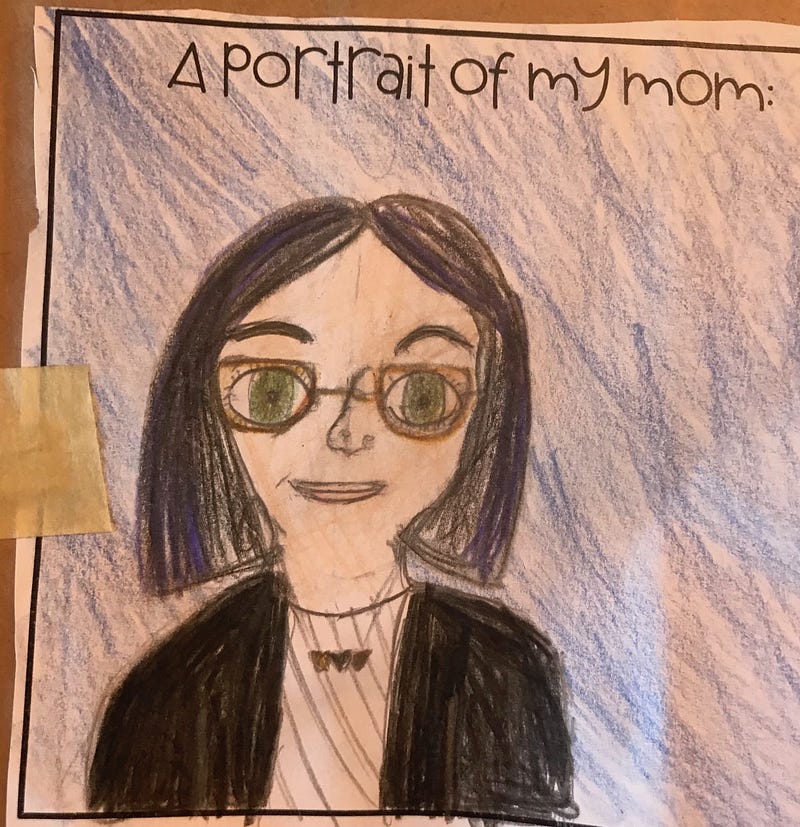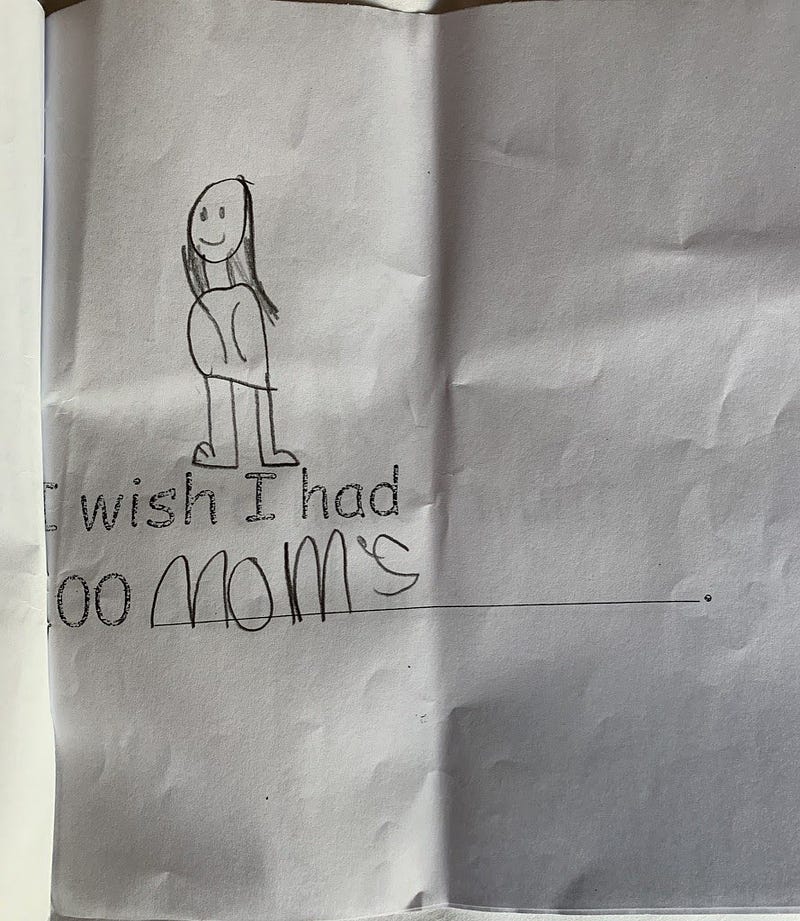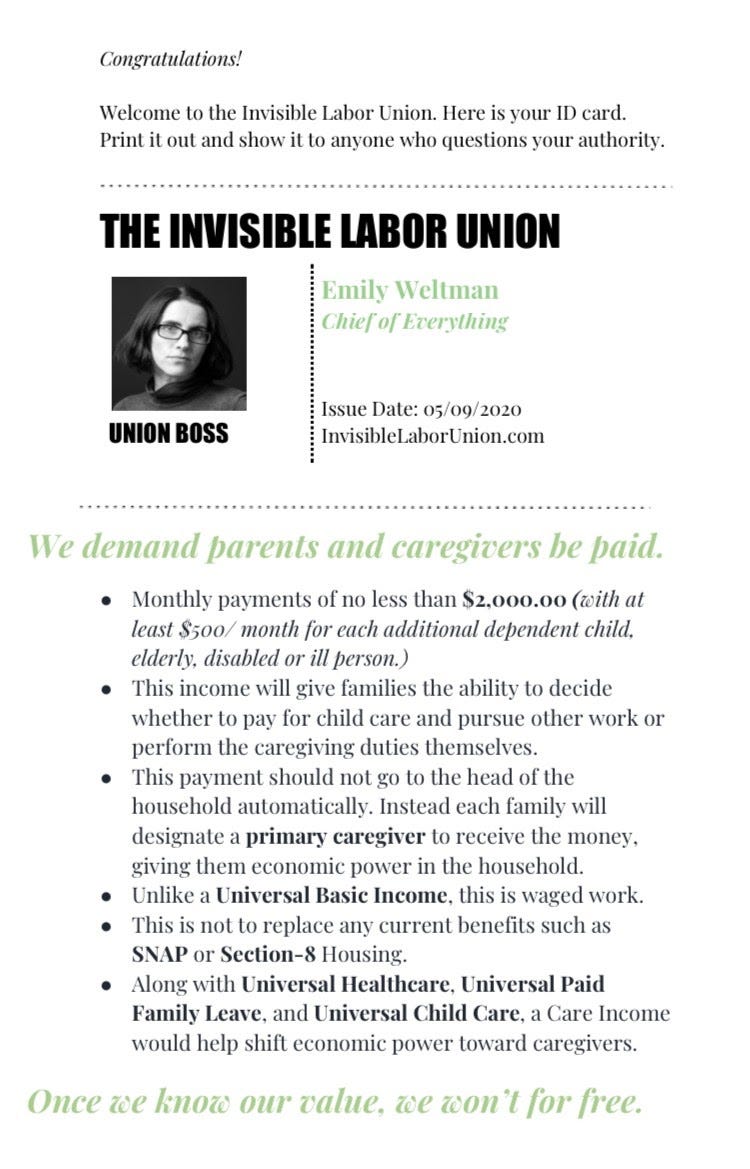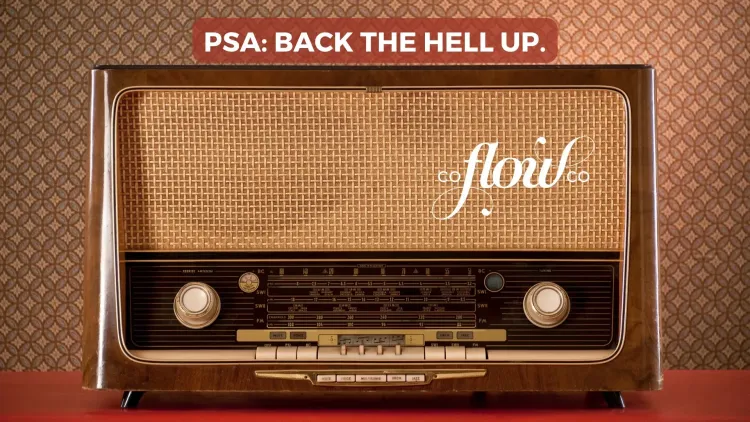Time after time.

24 hours a day, Mothers continue their quest for visibility, economic equality, and harmony.
Moms aren’t Superheroes.
We might have mom-fingers (that can pull a hot cookie sheet out of an oven with our bare hands.) And sure, we have eyes in the back of our heads. We can identify our baby in a sea of other crying babies.
We grow humans and a new organ, then run marathons. We give birth to tiny humans and go back to being queens within weeks. We nurse while addressing the U.N.
Moms don’t wear capes. We do tons of invisible labor, but being invisible is not a superpower.
As Donna Reed said, “The phrase ‘working mother’ is redundant.”
We already manage more than our fair share, with or without an outside job or business to run.
There’s a reason it’s called Invisible Labor. There is a reason parenting is called a “full-time job.” To make care work seen and valued, you have to see it first. And, if they didn’t before, our partners are seeing it now.
Should we mourn the loss of the title superwoman? Was that an attainable, measurable part of our job in the first place?
We are Caregivers. We keep everyone else alive, healthy and happy.
What is a mom’s job? My kid’s answer: “A parent’s job is to keep me safe and alive, with food and water and stuff. And always snuggles.”
All the feeding and emotional support make up a full day’s to-do list. Why do moms feel guilty if we don’t do more than that in a day? Preventing trauma and keeping kids happy is an important, time-consuming job requirement.
Healthcare workers don’t fly or have force fields, but their care work is definitely a heroic act. Frontline workers offer different magical gifts, like holding your loved ones hand when you can’t be in the room.
Providing care is done to the detriment of women’s opportunities and lifelong earnings. We make life and give birth with no healthcare. We take unpaid leave to care for family in greater numbers. We support the flourishing careers of others. We work in dangerous jobs at hospitals, saving lives for less money. Maybe women are in fact superhuman, with the amount of crap we take.
Caregivers keep our economy moving.
The work women do, seen or not, is a real, hard, unrelenting gig that is above all else: essential. This is why childcare and medical workers are deemed an essential part of a functioning economy.
Mother’s “home-work” keeps the economy going. If not at a clip, women keep it humming. Women’s care work is literally saving America, IRL, not just in some epic Marvel battle. Without women, countries come to a halt.
The majority of invisible and domestic labor is unpaid. The little income care workers make is still extremely underpaid. Women in healthcare who are “In Demand and Undervalued” see huge income gaps.
A woman’s work in many ways is priceless. It’s true, our love don’t cost a thing. Our time, however, does. The value of care work may seem immeasurable, but plenty of data shows what women’s care work does for GDP.
As essential providers, we are overdue for income equality. Mothers and all women deserve fair pay for labor, time valued equally, and health and safety to be a given.
Pay up.
This Woman’s Work

Work in the time of Corona is not any easier in May than March. Quarantine looks different for all women but regardless of their “job,” moms keep losing. We continue to do more at home, thanks to systemic issues in pay and career growth. 2 months in, life for mothers in quarantine, caregiving and working, is not getting easier.
Working women were already 10 times more likely to reduce paid work to take care of their kids, even with a partner at home. Now evidence of that can be seen in the drop in journal and academic paper submissions.
As many fight to hold on to work, our opportunities and choices shrink. Moms give other moms a pass. Don’t be so hard on yourself. Don’t try and do it all. It’s little solace to our independence, bank accounts, career goals, or dreams.
We’ve known since the 1970’s, women need support to be successful. “I Want a Wife” talked about the second shift. With social distancing it feels like one never-ending shift: we clocked in; that’s that.
“The lack of control and returning obstacles to our careers adds to our anxiety.” Our little remaining independence and autonomy vanished. Stuck at home without paid care work or additional support, mothers lose agency over our days, but more importantly, agency over our future.
Economic uncertainty forces our hand. We might not be ready to let go of work. But, like autonomy over our bodies, that may not be our choice. We are used to our choices being limited. — coFLOWco
As one mom notes, it’s what makes being a dad look so appealing.
“There’s nothing fair about this division of labor, in play or in life. The reality is that maintenance and care work, at home or at work, can really suck. It’s often boring, tedious, and emotionally and physically demanding.”
Maintenance and care work are not always fun or easy (though it can be rewarding). Care work is outsourced to women, immigrants, and people of color. It’s seen as “low skill,” therefore lower paid. Care work is essential, yet essential workers end up being the most vulnerable.
The paradox for women is that the work no one wants is so essential for everyone to thrive, yet essential workers bear the biggest burdens. Parents, single mothers especially, who are essential workers “are in perhaps the toughest spot” when they have to work.

This is why economic effects of the virus disproportionately hurt women and why it has bigger impacts on women in poverty and women of color.
Families with the privilege of added help before Corona recognize the value of that support. Some families still support domestic employees regardless of their ability to work and despite the added financial stress.
Ask any parent stuck at home right now. Given the means, what would you pay for 1 hour of childcare?
Women would not have to hide in the bathroom to work; men would do it to stop hearing women “complain” about equality. We would breathe a collective sigh of relief instead of frustration.
Clearly, a woman’s work is more valuable than ever.
Business as Ushe
Lack of childcare is part of the problem.
Flexible, remote work is better for women’s careers long term, but this is not business as usual. Employed mothers barely figured out how to make it all work before quarantine. Now tiny human coworkers invaded our home offices, demanding 12 snacks a day for nearly 60 straight days.

If you worked outside the home prior to the pandemic, (and you’re lucky enough to still have a job that can be done remotely), you’ve got new stressors. Having the tools needed to do your job, (which likely involved essential childcare providers before) is the next hurdle.
Not everyone has space to do work. You may be elbow to elbow with kids at the dining room table. Even with the right resources, we know working from home for most women is not exactly going “well.”
Indeed it’s an unfair assumption to make: that everyone has what they need, let alone the focus, support or energy, to suddenly do your job at home. One writer recently noted, our homes have been hijacked. “We have all been required to supply the equivalent of office space for our work.”
Seasoned remote work experts (long before this crisis) eye roll when companies declare working parents are finally saved. No one in leadership considered the implications for parents of forced, sudden remote, because the C Suite is still occupied by 97% white men.
Corporate America still expects a 40+ hour work week. Leaving many women to feel defeated while their partners work full time. Given that businesses are built by men and serve a patriarchal capitalistic society even in a pandemic, are we surprised?
Remote work is essential to create gender inclusive, family-friendly, flexible cultures. But having zero childcare was NEVER part of that equation.
Money Talks.
As we’ve seen income inequality impact our careers and homes, setting us up for failure in a crisis. Lack of childcare makes it even harder to make money. Covid-19 is compounding our economic insecurity. The financial impacts for women are so staggering, it’s been referred to as a She-cession.

Money is power. Power is mobility and agency. Agency is autonomy.
We teach our kids that women can be anything, then tie one hand behind their backs.
Without money women are severely limited in the means to provide basic care. Essential things like food, medicine, clothing, and shelter cost money.
Without money women are forced to stay with abusers in order to survive. The pandemic makes this exponentially worse. We see increased incidents of DV and the drops in income force more women to stay in unsafe situations.
Without money women are left with little control over their own lives.
With no financial support, no extra caregivers, grandparents, babysitters, nannies or daycare how can we keep it together? How do we keep kids from killing each other, off screens, learning and growing while our partners keep working full time?
How do we continue to equally run a home, raise kids and teach, do all the emotional labor, all while doing one or two jobs 40+ hours a week?
Spoiler alert: we don’t.
Time is money.
We are in several crises of care. Women and front line workers are falling behind. We are still centuries away from gender equality. We don’t have that kind of time.
Science, data and facts are useful (for everyone but Trump). Mountains of evidence show the financial benefits to closing gender and racial divides. Gender parity creates a better economy for everyone and increases GDP. Ensuring that women are financially and physically safe creates a better global economy.
When money is invested into women, they invest back into families. By paying women for all their work, we improve society for everyone. This is especially true for investing in education and childcare, small businesses, financing, and paid leave for women in poverty.
Time, like money for care work, is often seen as a gift for mothers, rather than a right. The idea of paying women for caregiving and paying women equal wages is still a fringe idea.

The 1% is focused on getting businesses back to “normal.” Even when men talk about reinventing capitalism, their reopening efforts continue to ignore the need for gender equality. We have the information (see any link above), reasoning, stories, and solutions and tools.
To prevent a full on collapse of this country, women need money. Ideas once considered radical are surfacing. “The Emergency Money for the People Act” and the “Monthly Economic Crisis Support Act” would give $2,000 monthly payments to 90% of Americans. (Immigrants and undocumented people are likely not counted here).
By that account, 10% of the U.S. is ok financially, and the vast majority are not. Yet these bills are unlikely to pass. The GOP will blame costs, (but quickly save big banks). Math isn’t the issue. They are just not interested in helping certain big groups of Americans: poor, vulnerable, marginalized, people of color and women.
The irony: paying women creates a better, more robust, economy.
The roadmap to a more equitable future
As our country navigates this together, we are forced to evaluate what we value most, and what we are willing to pay for it. We established care work is essential and invaluable.
Costs and spending will have to adapt to those values. If we value the work of women and essential employees, paid care work and equal pay need to be valued too. On the precipice of a new world economy, we need new strategies.

First, we need men and women in power who believe in data, numbers and facts. And we need leaders to fight for a better social contract for America and stop giving the wealthy a pass in taxes. (Vote!)
Second, financial support for women, especially during a crisis with record unemployment, needs to be significant and regular. (No more one time band aid payments which barely covers 1 months rent.)
Third, invest in mothers. Paying mothers is imperative and we have plenty of proof. Without moms who thrive, the economy doesn’t have a fighting chance.
Fourth, dismantle the Patriarchy. Really. Even men agree: The patriarchy has had its day; when rebuilding the world, gender equality must be top of mind. (Start by dividing up time in the household equally. Thanks Eve Rodsky!) This also means companies changing workforce expectations and how they reward employees.
Fifth, change our language. Stop saying moms who work in the home “don’t work.” Mothers who “only” raise kids: Stop saying you don’t work. Men please stop telling moms you are “giving” them time.
Patti Maciesz artist and creator of Bill the Patriarchy calls this the The Fuck You FAQ. If we can bail out banks, corporations and find money for fake wars, certainly we can financially support families.
Sixth, we need unions.
This is not a “crazy” left idea. It doesn’t mean revolution…though many women are ready to revolt. Unions are not radical. They are pragmatic bodies of workers, who use laws, research and reasoning to create better working conditions for everyone. In order to properly support front line workers, we need unions to protect the rights of those most at risk due to Covid-19.
“New Deal-era labor laws must be refreshed and improved to support and empower today’s essential workers.”-WP
Fun fact. According to the The American Federation of Labor and Congress of Industrial Organizations (AFL-CIO) we can thank women for unions too. The beginning of social impact work was started by the first unions to provide protection, better pay and safety for women in the Industrial Revolution. “From that point forward, the labor movement has played a central role in the advancement of women’s rights.”
Billing the patriarchy was not Patti Maciesz’s only great idea for care work to be counted. Between jobs, a toddler, and infant and pandemic, she’s been working to build a Union for mothers.

The Invisible Labor Union will evangelize the message: all work counts.
As a union, collective bargaining can secure pay, benefits, improve working conditions, and create lasting social and political change.
Mother’s work deserves to be seen, celebrated and paid all year round, not just once a year on Mother’s day. This goes for work in the home and the “the office.”
Use your voice to advocate for all women and equal pay. Amplify women’s rights at the United States of Women and follow the Invisible Labor Union.
Join fellow moms in demanding pay for care work.
Collective action gives women one voice to bring “economic justice to the workplace and social justice to our nation.” We are stronger, more visible, and louder in numbers.






Member discussion